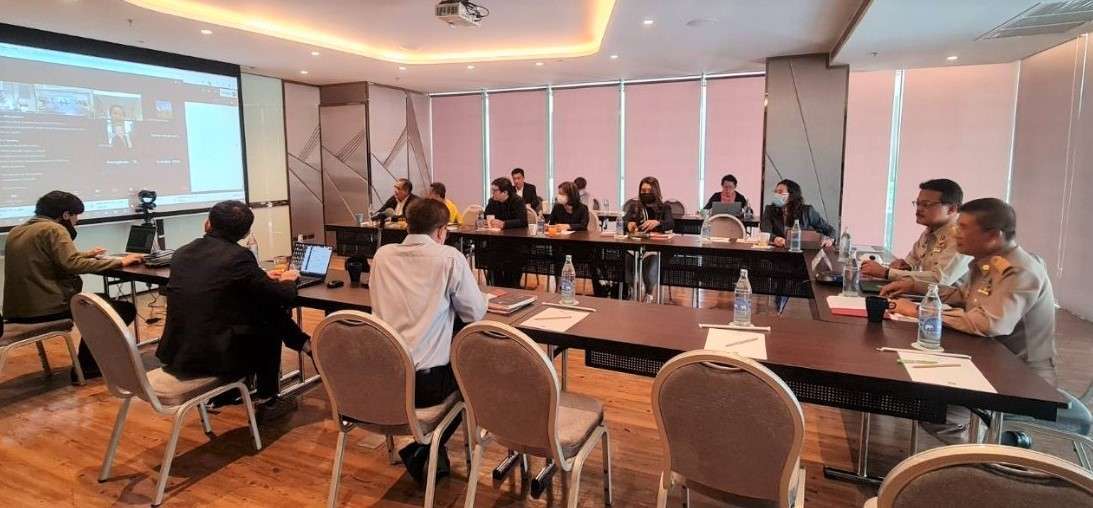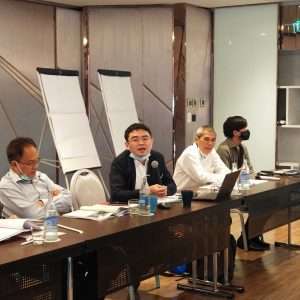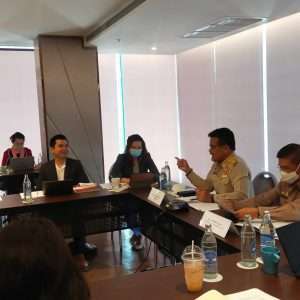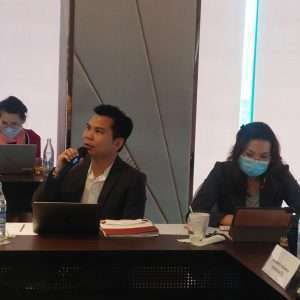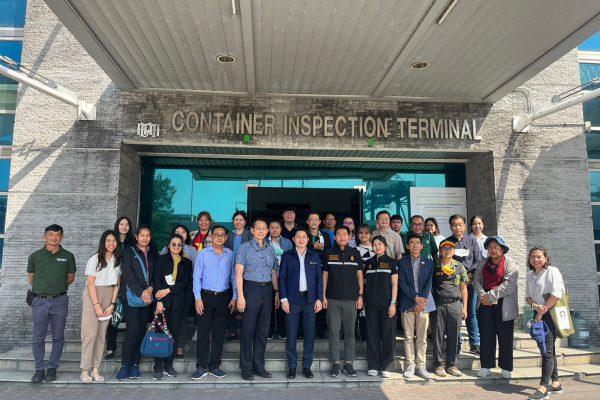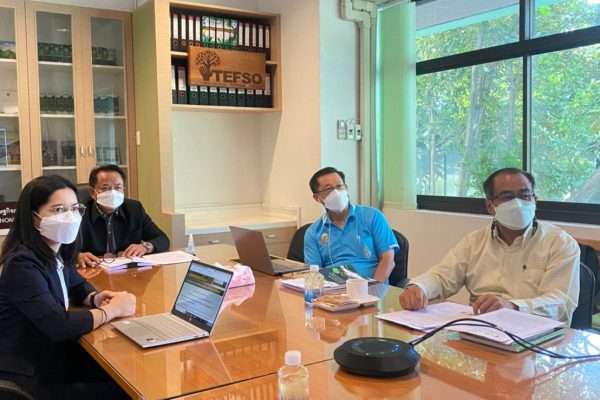The third ad-hoc working group was convened on 15 March 2021 with 44 participants from government, private and civil society sectors.
Many decisions have been made, preparing for the Technical meeting with the European Forest Institute (EFI) on 1 and 8 April.
The Reclaimed Timber sub-working group presented the gaps analysis, which gathered from the studying project and recommendations from the sub-working group. The ad-hoc working group concluded that the self-declaration method could be developed for controlling the reclaimed timber transport within the province. This transport point is currently not regulated. The reclaimed timber operators are presented at the meeting to discuss with the Royal Forest Department (RFD) regarding their concern over the delay in processing reclaimed timber transport permits across provinces. This concern is taken up by RFD. RFD and the Reclaimed Timber sub-working group will develop a plan to streamline the process.
Following the Ministry of Natural Resources and Environment’s announcement announcing the deregulation of tree cultivated on Sor. Por. Gor. land, the ad-hoc working group approves the recommendation from the Supply Chain Control on Public Land to develop the self-declaration guideline for declaring timber source and facilitate transportation, which is based on the draft that the Supply Chain Control on Private Land developed.
The European Forest Institute (EFI), which has continuously assisted Thailand on the FLEGT VPA’s technical matters, has sent the draft annex VI: FLEGT License to the Thai side. The sub-working group has deliberated the draft and briefed the ad-hoc working group on comments and further developments needed. The ad-hoc working group agreed with the recommendations that the certification for timber export (Ror. Mor.8) currently managed by the Royal Forest Department should follow the FLEGT license format so that the two documents are in unison to streamline the export process. Moreover, the ad-hoc working group concluded that CITES licensed timber does not require a FLEGT license. Deliberation of this draft will be held again with the Annex Drafting Consultant, Department of Foreign Trade, Customs Department, and RFD leading the discussion.
Lastly, the ad-hoc working group approved the Product Scope sub-working group’s proposal to develop a concept for certifying recycled pulp and paper. The concept will be based on Indonesia’s certification process, which allows the exporter to declare their products. The responsible organization will then assess the applications and verify the products using lab tests. To promote recycling, recycled pulp and paper will be exempted from the FLEGT license. The certificate can help to inform Thai and European customs of the product status.

